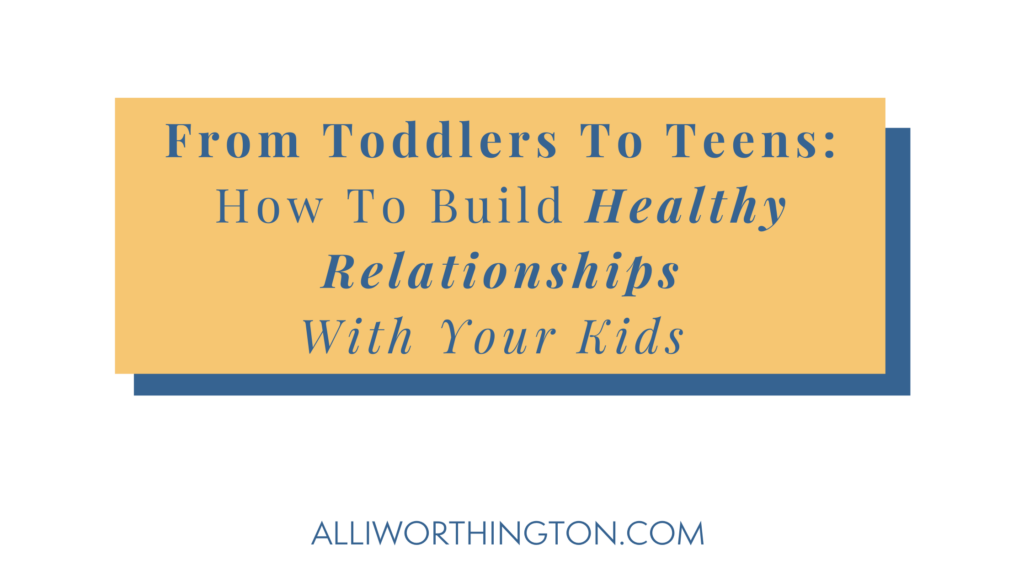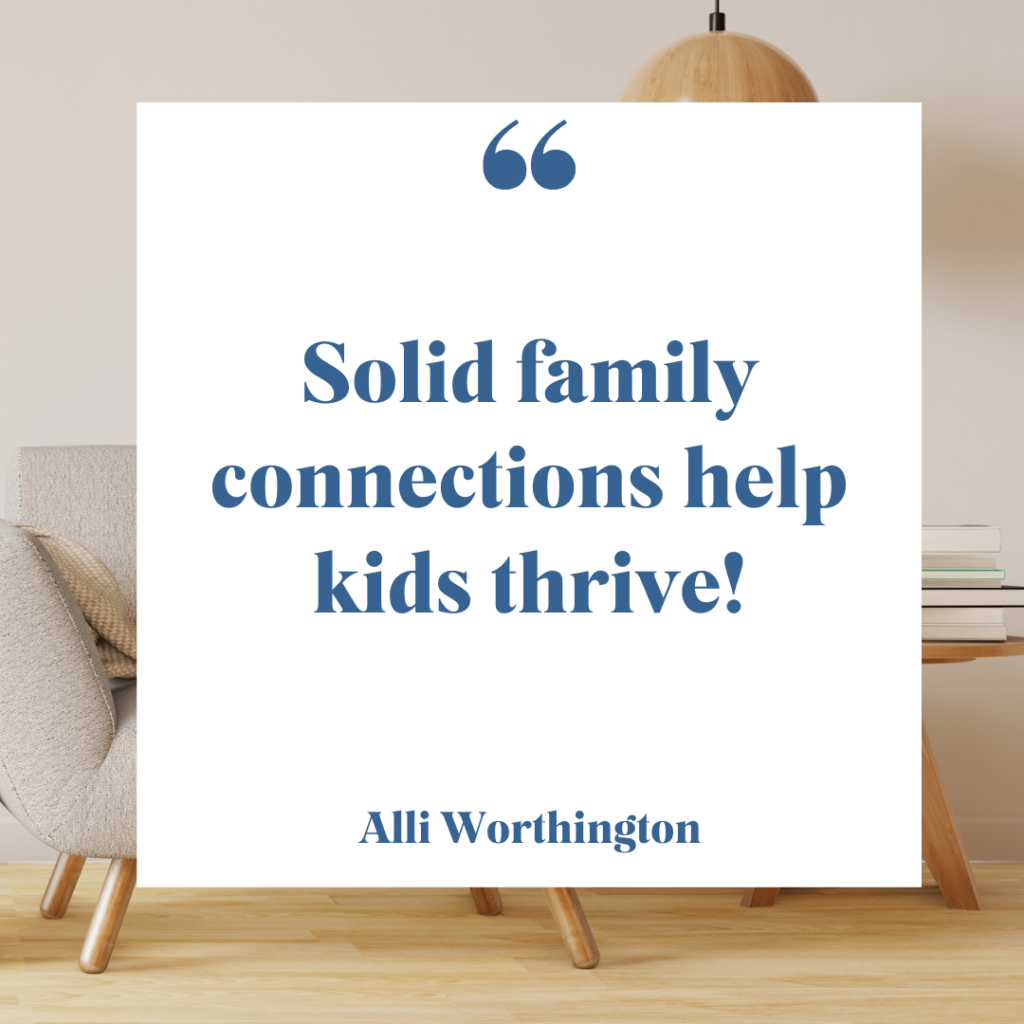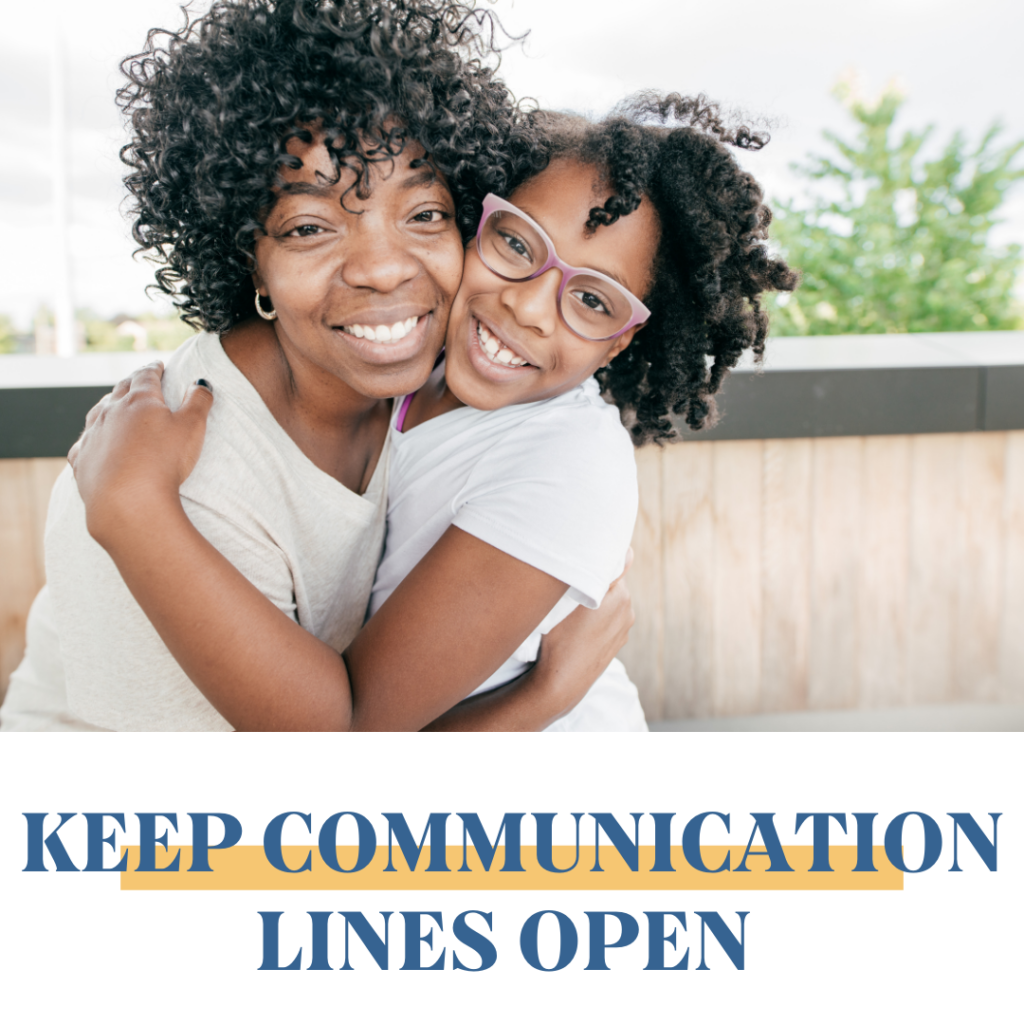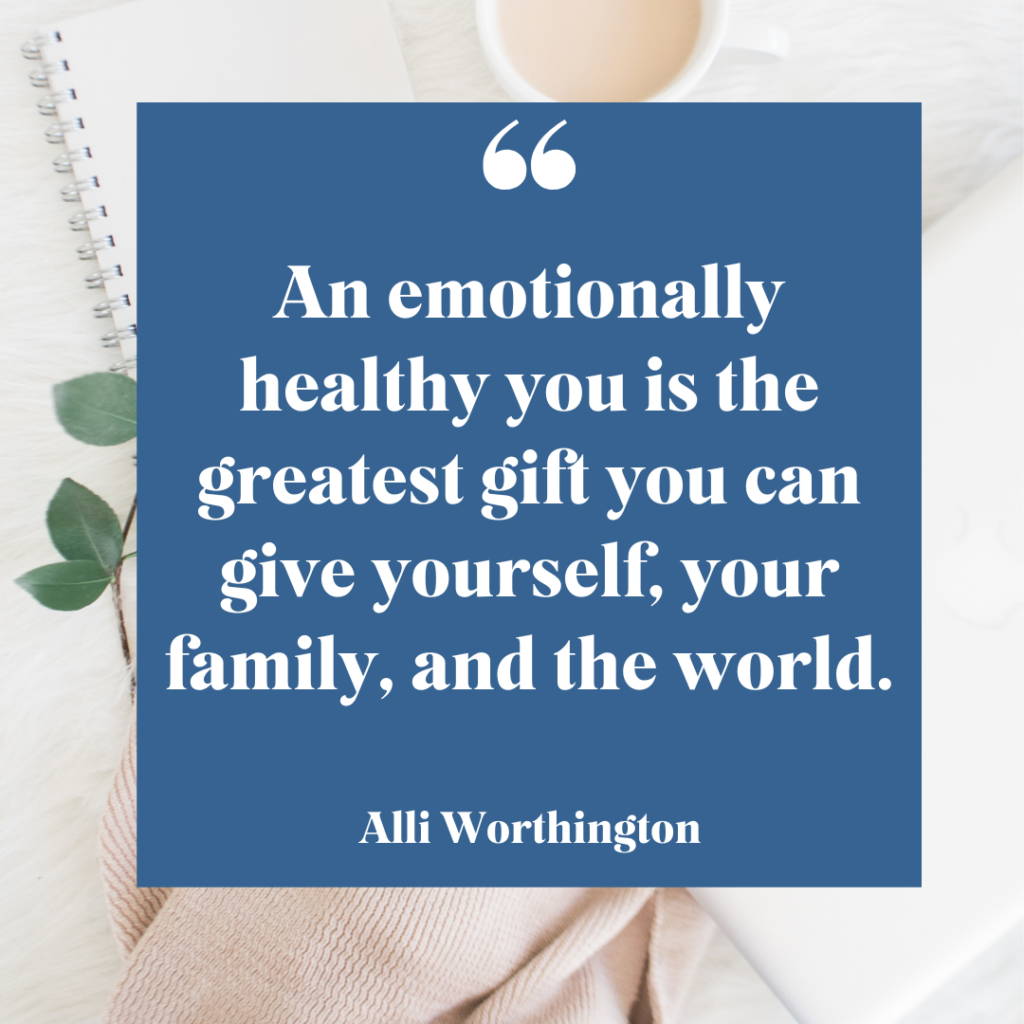You know building your brand is a crucial step to crafting your dream business. This workbook is designed with you in mind to simplify those steps.
Take the 3 day course building challenge
From Toddlers To Teens: How To Build Healthy Relationships With Your Kids

We want our children to thrive, grow, and become confident, happy adults. Changing family relationships as our kids grow from toddlers to teenagers bring different challenges during each season.
So, how do we build healthy relationships as our kids mature that are both nurturing and supportive? Whether facing the terrible twos or the tumultuous teenage years, there are practical ways to build meaningful connections with your kiddos.
From creating open lines of communication to encouraging independence and self-care, these tips will help you build strong family bonds. They will allow you to create a nurturing environment where love, trust, and understanding thrive. So, let’s dive in and discover the power of family connections!
The Importance Of Building Healthy Relationships With Your Kids
Strong family bonds provide a sense of security, belonging, and support. When kids feel connected with loved ones they are more likely to thrive in all areas of their lives.
A study on family connections published in the Pediatrics Journal found that solid family connections help kids to not just avoid negative behaviors but to also develop positive ones.
The lead study author Dr. Robert Whitaker said, “This study is different because it showed that family connection is associated with thriving and not just surviving or avoiding harm. The essence of family connection is children feeling that they are accepted and nurtured at home, which allows them to learn what their strengths and weaknesses are in a safe environment as they are building their identity.”
Healthy relationships with your kids provide a secure base from which your children can develop a sense of identity, take risks, and explore the world.

The Marble Jar
Our motherly desire to ensure our kids are well-equipped and emotionally prepared for the future may cause us to feel pressure to make our time with our kids both memorable and teachable.
One Saturday afternoon, I watched a YouTube parenting video about how to savor the limited time you have with your kids. In the video, a kind man showed a jar of 936 marbles, each representing a week of my kid’s life from birth to high school graduation.
The goal was to remove a marble weekly and let it remind me to savor my time with each kid and use it wisely as a mother, all while keeping in mind that my time with my kids was dwindling. I bought the jar and all the marbles. With each marble that I removed my thoughts began to spiral negatively. Did I do enough? Did I teach them enough? Did I spend enough quality time with them?
A Wake Up Call
That marble jar sat in my kitchen for ten weeks until my wise and good friend Pamela came over.
When she asked me about the marble jar, I cheerfully told her how it reminded me to use my time well because the time with my kids is limited. I expected her to praise me; instead, Pamela laughed and said,” Alli, that sounds like a recipe to make mothers feel miserable.” Then, I blurted out, “It is. I hate it so much!”
Thankfully, we don’t have to teach our kids everything they need to know before they graduate high school. What if we put aside the long list of things we feel pressure to teach? Instead, let’s spend time providing a home where healthy relationships will grow.

Communication Strategies To Create Strong Family Connections
The editor of the Handbook of Family Communication, Anita Vangelisti, wrote, “Communication is what creates families. When family members communicate, they do more than send messages to each other — they enact their relationships.” Communication lays the foundation for trust, understanding, and connection within the family. Here are some practical communication strategies that will help your kids feel safe expressing themselves authentically:
Be approachable: Maintaining an open and welcoming posture can make your kids feel comfortable and encourage them to express themselves freely. Let your kids know you are always available to listen and support them.
Actively listen: Maintain eye contact, give your full attention, listen without interrupting, and ask open-ended questions to encourage conversation.
Be honest: Find age-appropriate ways to discuss challenging topics and situations.
Have an empathetic ear: Validate your children by listening and summarizing their feelings and needs. Empathy helps your kids feel understood and valued which will create a stronger connection between you both.
Be clear and concise: Break down your messages into smaller, digestible pieces, and ensure that your kids understand what you are saying.
The Pay Off
As your teenagers move toward adulthood, it’s normal and natural for them to put distance between themselves and family. But it’s more important than ever to keep the lines of communication open–it does pay off in the end.
On the morning of my eldest son Justin’s college graduation, he asked if one of his friends could sit next to me at lunch after the ceremony. He said, “His mom isn’t super easy to talk to like you, and he needs advice. He’s always heard me talk about how great you are with stuff like that.”

Encouraging Independence While Building Family Relationships
Growing up is inevitable; loving our kids means letting them go. Teaching them to be independent is one of the greatest gifts we can give them. As your children mature, encouraging their independence while continuing to build a relationship with them is a delicate balance. Let’s look at some tips on how to walk this fine line:
Encourage decision-making: Allowing your kids to make age-appropriate decisions and take responsibility for their choices helps foster independence and builds their confidence.
Support their interests: Encourage your kids to pursue their interests and develop their skills.
Respect their autonomy: Give your kids the freedom to express their individuality by making their own choices. Avoid imposing your preferences on them.
Maintain regular check-ins: Regular check-ins can be casual conversations or shared activities to stay connected with your kids.
Read my article 15 Ways to Help Your Children Develop Childhood Independence to learn more ways to foster independence.

Create Quality Time Activities To Strengthen Family Connections
Quality time is essential for building strong family bonds with your kids. It’s not just about being physically present; it’s about engaging with your children and creating meaningful experiences together. Here are some ideas for activities that will help create strong family bonds:
Family meals: Set aside time for regular family meals where everyone can gather, share stories, and connect.
Outdoor adventures: Plan outdoor activities like hiking, biking, or picnics. Spending time in nature not only provides opportunities for relationship building but also promotes physical health and well-being.
Celebrate achievements: Celebrating your child’s accomplishments, big or small, is a great opportunity for spending quality time with them. These celebrations will also reinforce positive behaviors.
Daily gratitude sharing: Sharing what we’re grateful for can be at dinner, in the car, bedtime, or whatever time works best with your family’s schedule.
Shared hobbies: Discover and explore shared interests with your child. My son James and I aim to ride every massive roller coaster in the country together. In the last three years, we’ve been to twelve parks, braved the biggest roller coasters, and had an absolute blast. Whether it’s cooking, painting, or playing a musical instrument, engaging in hobbies together allows for quality time and mutual learning.
Family movie or game Night: Board games and movies can bring great laughter and fun to your family bonding time.
Family book club: Take turns choosing a book and decide when your family book club will meet to discuss it.

Self-Care Contributes To Creating Healthy Relationships
When we neglect self-care, we negatively impact the well-being of our family relationships. Being attuned to our kids’ needs when we are stressed, exhausted, or overwhelmed is challenging.
A licensed Marriage and Family Therapist, David Schwartz, wrote in Psychology Today about the importance of self-care: “It is not selfish to take care of yourself. It is a necessity. The good news is, the more time you spend taking care of yourself and recharging your own batteries, the more positive energy you will have to give to your child.”
An emotionally healthy you is the greatest gift you can give yourself, your family, and the world. By taking care of yourself, you are modeling healthy behavior for your child and teaching them the importance of self-care.
Self-care creates a positive and nurturing environment where you and your kids can thrive. The more you invest in yourself and the more emotionally healthy you are, the more your kids will stay close to you as they mature. Read my article Self-Care Is Never Selfish: How to Lose the Guilt of Self-Care to learn how to prioritize self-care without guilt.
Putting It All Together
By prioritizing communicating effectively, encouraging independence, spending quality time together, and investing in self-care, we create a nurturing and loving environment for our families. Remember, building healthy relationships takes time, effort, and patience. So give yourself grace and embrace the journey of navigating challenges, celebrating milestones, and creating a lifetime of love, support, and cherished memories.
Your Action Step
Now that you know the power of family connections, let’s discover your secret superpower! Take this 2-minute free quiz to find out your secret superpower.
And remember: You’re doing great!
